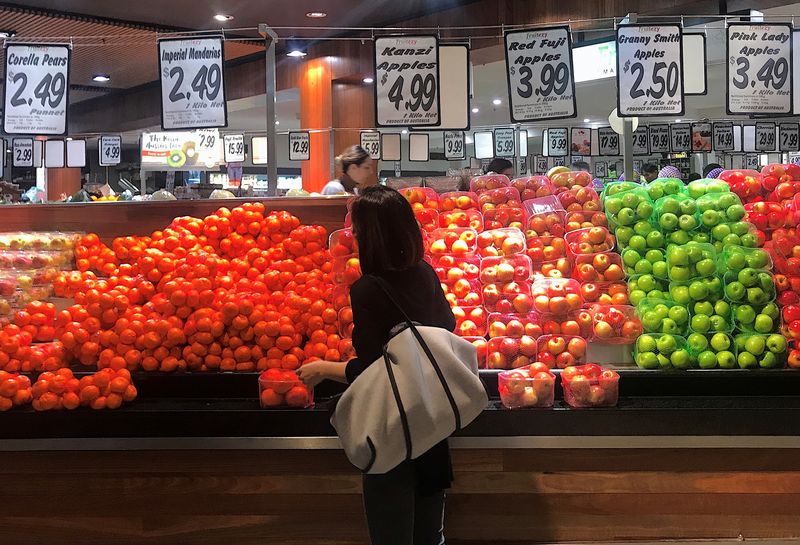By Wayne Cole
SYDNEY – Australian consumer prices surged at the fastest annual pace in two decades last quarter as petrol, home building and food costs all climbed, fueling speculation interest rates could rise from record lows as soon as next week.
That would be unwelcome news for Prime Minister Scott Morrison as he fights a tough election where the rising cost of living has become a sore point with voters.
The data bolstered a growing view that the Reserve Bank of Australia (RBA) no longer needs to keep interest rates at emergency lows of 0.1% and should tighten soon, perhaps even at its next policy meeting on May 3 rather than in June.
“The increase in non-tradables inflation signals that this is partly due to the momentum on wages, and not just disruptions in the global economy,” ANZ Bank economists said in a report.
“We now expect the RBA to hike by 15 basis points next week. Inflation pressures have momentum and have broadened. A cash rate target of 0.1% is inappropriate against this backdrop.”
Markets also quickly narrowed the odds on a rise to 0.25% next week, though many still favour a June hike given such a sudden move would cause political ripples so near to the election on May 21.
Futures also shifted to price in rates of 0.5% by June, whether in one hike or two.
The Australian dollar lifted off two-months lows to as high as $0.7190, but was still down on the week as investors had already factored in rate rises and were more concerned about Chinese lockdowns and sinking stock markets.
“We now expect the RBA to initially hike by 40 basis points to 0.5% in June,” said Andrew Boak, an economist at GS Macro, who sees a series of quarter point moves to an eventual peak of 2.5%.
“The combination of above-target inflation, an economy initially resilient to hikes and a more hawkish reaction function skews risks to a steeper and higher path for rates.”
PAINFUL READING
Wednesday’s data made for painful reading as the consumer price index (CPI) jumped 2.1% in the first quarter, topping market forecasts of a 1.7% increase.
The annual pace picked up to 5.1%, from 3.5% the previous quarter and the highest since 2001.
A closely watched measure of core inflation, the trimmed mean, hit a record 1.4% in the quarter, taking the annual pace to the highest since early 2009 at 3.7%.
That was the first time since 2010 that core inflation had lifted above the Reserve Bank of Australia’s (RBA) 2-3% target band, a radical turnaround from recent years when it consistently undershot.
“This reflected the broad-based nature of price rises, as the impacts of supply disruptions, rising shipping costs and other global and domestic inflationary factors flowed through the economy,” said Michelle Marquardt, the head of price statistics at the Australian Bureau of Statistics.
Petrol led the charge in prices with a gain of 35% for the year, while the cost of new dwellings climbed a record 13.7%. Food prices also picked up in the first quarter driven by high transport, fertiliser, packaging and ingredient costs.
Commonwealth Bank of Australia economists said the inflation data meant the RBA should start raising rates, but they were not changing their call that the first move would be in June – after the next round of wages data – because of the guidance in the central bank’s minutes of its April policy meeting.
“If the RBA lifts the cash rate at the May board meeting next week they will have reneged on what they said just last week – namely that the board agreed that it would take into account evidence on both inflation and the evolution of wages costs as it sets policy,” they said in a report.
(Reporting by Wayne Cole, additional reporting by John Mair; Editing by Jacqueline Wong and Sam Holmes)
